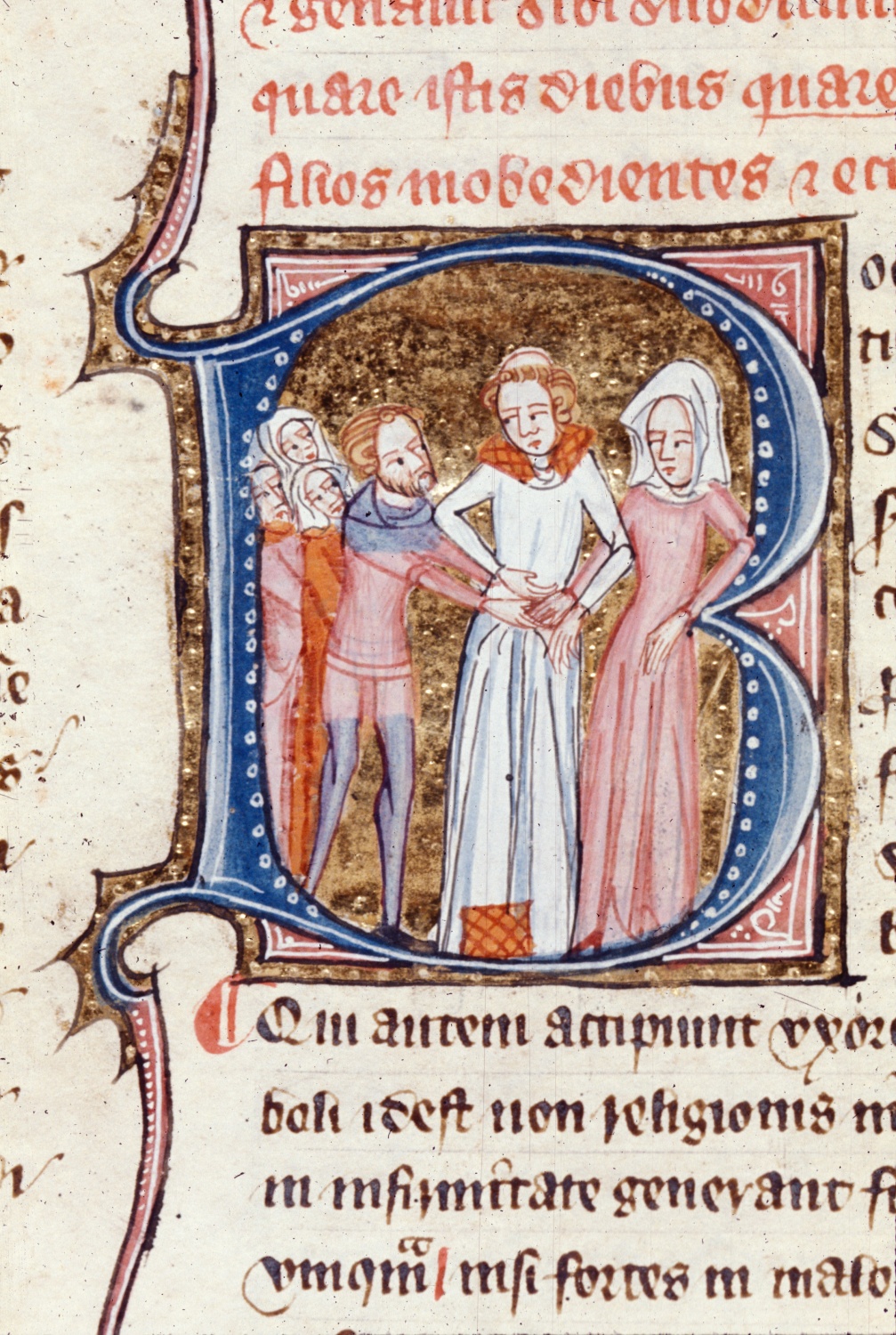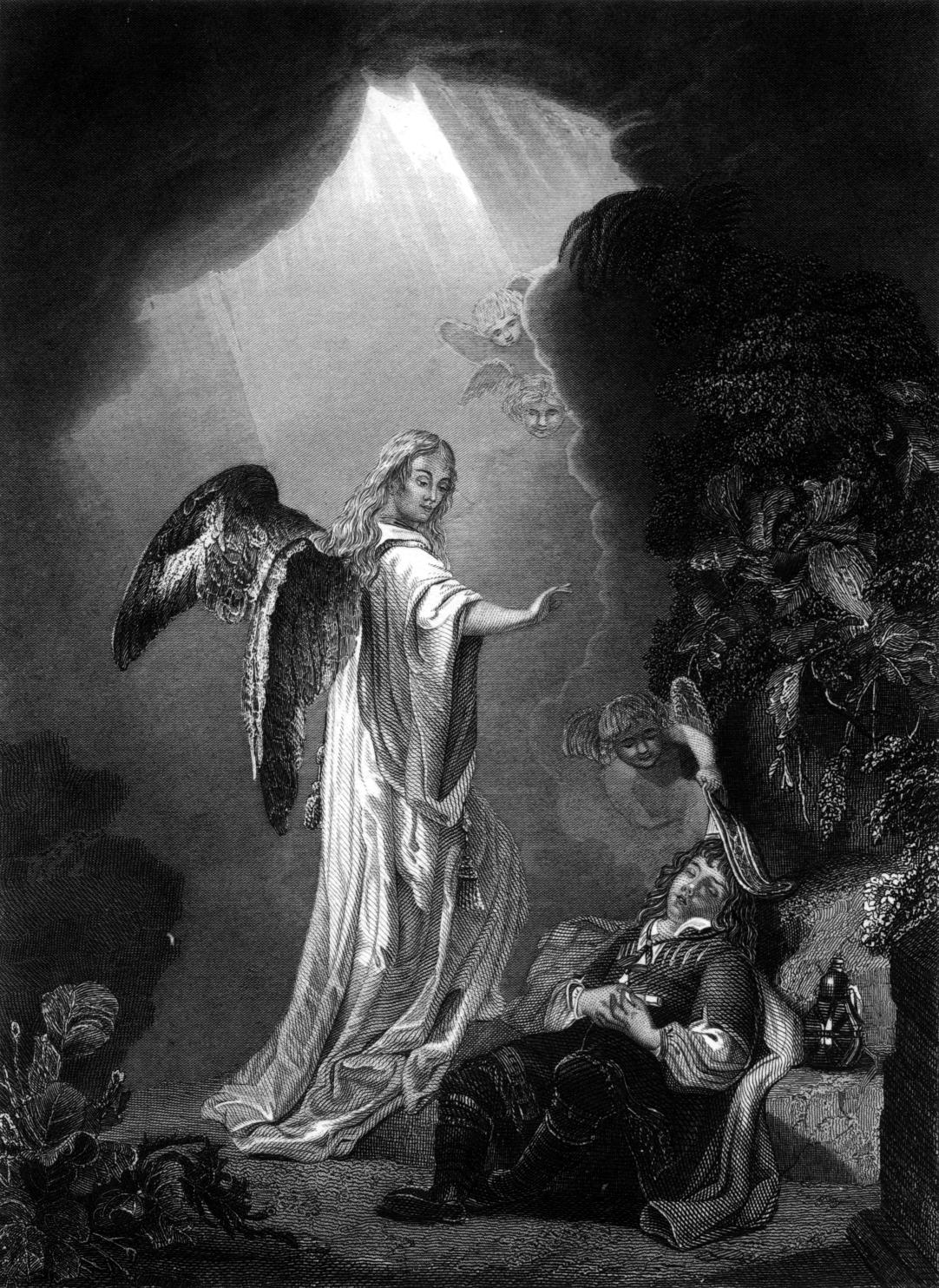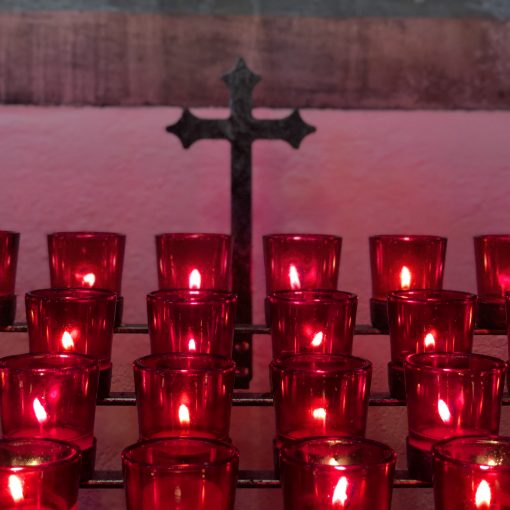This morning marks the beginning of the Mid-Atlantic Regional SBL (and AAR) meeting. There are some interesting papers but this morning I need to try and finish my paper for tomorrow. I thought I would share the general premise here. Feel free to critique it and if I have the time I will incorporate your thoughts!
Boaz Centrally Marginalized

Ruth and Naomi are rightly understood by most commentators as the central figures of the book of Ruth. Almost every modern commentator agrees that Ruth and Naomi are the initiators of all action and Boaz merely the respondent. In many ways Boaz is only marginally relevant to the story, he is present because only a male figure could accomplish the deeds necessary to secure Ruth and Naomi’s future.
Yet there has been a tremendous amount of attention paid to Boaz over the centuries. Older and more traditional commentaries, going back to the rabbinic midrashim and as recent as Frederic Bush, [mfn]E.g., “[Boaz’s] magnanimity knows no bounds.” Ruth, Esther, Word Biblical Commentary, (Dallas: Word Books, 1996), p. 54.[/mfn] depict Boaz as the righteous and benevolent savior of Ruth and Naomi. Often to the extent that the women are displaced from their central roles. More recently, however, we find commentators like Fewell and Gunn who focus upon Boaz precisely with the purpose of diminishing in some way his role.
Boaz has thus been centrally marginalized in two instances. In the first case the narrator since the story itself places Boaz in a distinctly tertiary role relative to Ruth and Naomi, and in the second case by the scholars who seek to reduce his actions to those of a horny old man.
Summary
(1) The story itself presents Boaz as a figure who is key to the story, he is a necessary element of the preservation of Ruth and Naomi, but it is made clear in a number of ways that he is merely a tool, [mfn]Boaz is a tool! That makes me giggle. Sorry. I am juvenile.[/mfn] used and manipulated by the women, with very little value of his own aside from his role as “redeemer.”
(2) While Boaz is not a central figure many scholars have recently have sought to marginalize or diminish Boaz by making him a horny old git, reacting primarily to his primal urges rather than out of any altruistic or religious motives. This is no doubt in reaction to many of the equally lopsided interpretations of Boaz as the pious pillar of the story. The result is that while his actions are important for the movement and culmination of the story, his character is impugned and his motives are reduced to physical impulse.
So, what do you think?





13 thoughts on “MAR-SBL paper: Boaz Centrally Marginalized”
So this maybe isn’t exactly related to your main point here, but it might have to do with Boaz’s reward, which would have some bearing on how the text views him. I always thought the nearest-blood kinsman-redeemer didn’t want to marry Ruth because the kid wouldn’t be his, but Mahlon’s and/or Chilion’s via levirate marriage. But Obed gets listed as Boaz’s son in the end. Why (or how) is he blessed with a son?
Funny you should mention that… We discussed it in a paper this afternoon on levirate marriage. There are issues with Ruth (the book) and whether or not it is really a levirate case and whether or not the property should be tied up in the matter.
Part of the answer may be that in Ruth 4:5 it should read ““The day you acquire the field from the hand of Naomi, *I* will acquire Ruth the Moabite.” (This is what the Hebrew text has written ketivbut the ancient marginal note qere reads as most modern translations, “you will acquire.”) I think this is a better reading and might explain so-and-so’s response since the property he purchases from Naomi would ultimately revert to the descendent of Ruth/Boaz/Mahlon.
Now the issue you allude directly to is the genealogy, Mahlon is not mentioned. So how is that Boaz’s redemption of Ruth allows “his name to be established” in Israel? “His name” as it occurs here and in other levirate discussions such as Gen. 38 and Deut. 25 must refer to something other than the actual name of the deceased. His property is the usual response, but wouldn’t that property then go to his brother, even without the marriage and thus remain in the family?
I am not convinced of exactly what establishing “his name” means in this context. It is too slippery. All I do know is that it doesn’t refer to his actual name!
My question wasn’t so much on the property as on the progeny. I was under the perhaps naive impression that the way it was supposed to work was that the kid was supposed to be Mahlon’s. That way M.’s lineage would keep going. But Boaz gets the kid! Mahlon doesn’t get any credit as David’s ancestor.
The property is tied up in the progeny and that is exactly the question I raised in the session. Mahlon’s name dies out, he is not included in the genealogy so how has Boaz fulfilled that levirate duty? I don’t know (and neither did anyone in the room and they were mostly all smarter and more knowledgeable than I) but what we DO know is that the book of Ruth believes that it HAS been fulfilled. So apparently we need to adjust our understanding of what it means for “his name to endure.”
As the possibly only person in these comments who doesn’t know Hebrew, I’m drawing on the memory of an old sermon (or perhaps someone’s eisegesis), but doesn’t Mahlon mean something along the lines of nincompoop or…tool? Boaz is not a main character, but in faithfully fulfilling his role as redeemer, he is rewarded with (royal) descendants. Mahlon doesn’t get credited with Obed because he, for whatever unspecified character flaw, doesn’t deserve it.
Don, this is 8 years old now, but in clicking back through posts I realized I never had replied to this comment. There is no clear etymology of Mahlon’s name and it does not occur anywhere else in the Bible or in extra-biblical literature. The author also does not make any play on the name (as he does with “Naomi”) so there is little to guide us in knowing what they etymology might be. Of course that hasn’t stopped some from creating such meaning….
Chris,
I was thinking about this on the drive back from the conference last night. Could the antiquated language of Boaz (his use of paragogic nun’s) be a very tangible representation of this marginalization by the narrator? The very way he speaks is distinct from the other characters in the story. He’s in some way marginalized every time he opens his mouth.
Excellent suggestion! Many commentators have noted his “archaic” style of speech. I think you are on to something and I have included it in my (still unfinished) paper! With attribution, of course.
I’m not sure about “marginalization,” but I do think that the “odd” linguistic features in Ruth have a rhetorical/literary function. In my Baylor Handbook I considered 7 features (oddly, I now see that I discussed the paragogic nun elsewhere, although it fits at this point as well) and drew this conclusion (2010:49):
“These seven features are, in my opinion, best understood as part of the story-teller’s creativity and linguistic artistry. And yet they are not simply literary window-dressing. It is no accident that five of the seven features are in the mouths of No‘omi and Boaz, while only one is use in Ruth’s speech. The narrator set up a light ‘linguistic curtain’ with the audiencea on one side and No‘omi and Boaz on the other. The implication is that, while they audience is reminded throughout the Ruth is a foreigner, they are also encouraged, by linguistic means, to identify with her. Although No‘omi is the story’s protagonist and her redemption is an important theological message, Ruth is the heroine of the story and it is her courage and loyalty that the audience is encouraged to take in the most deeply. No‘omi may have been re-filled by God, but God has provided for Ruth across cultural and political boundaries — an important reminder for the Israelites at many historical points.”
The paragogic nun fits this pattern — four are placed in the mouth of Boaz (Ruth 2:8–9, 21) and two are in No’omi’s speech (3:4, 18).
Interestingly, I’m preparing a paper on these issues from the perspective of reader-and-text for a presentation next Fall. I’d love to have a copy of your paper when you’re finished (it will be fully acknowledged, of course!).
Robert, thanks for posting this! I was able to mention your comments in my paper and Gary Rendsburg in particular (who was in attendance and my advisor at Cornell) was very interested. (I think he is hoping you haven’t beaten him to an article!) Please let us know when this book is out, I am looking forward to it!
Chris,
In this particular area (style-shifting, code-switching), I’ve taken a good bit of inspiration from Gary. But, as always, there’s still more to be said. 😉
Email me an address and I’ll send you a copy of the book (I’ve just a few left). It came out last month.
Chris,
I read an article a short while back (the publication and by whom it was written unfortunately continue to elude me) in which it was suggested that Boaz was given a marginal role by the writer of Ruth intentionally so that the women would come to the fore. In doing so, it was argued, the writer of Ruth was combating the patriarchal dominance of that time period and was thereby asserting that women were equally valuable and important.
I thought that the premise was interesting, and it may give some credence to Boaz being a centrally marginalized figure in the book of Ruth. However, from what I can remember, the premise while interesting was poorly supported and came off as little more than a rant for gender equality.